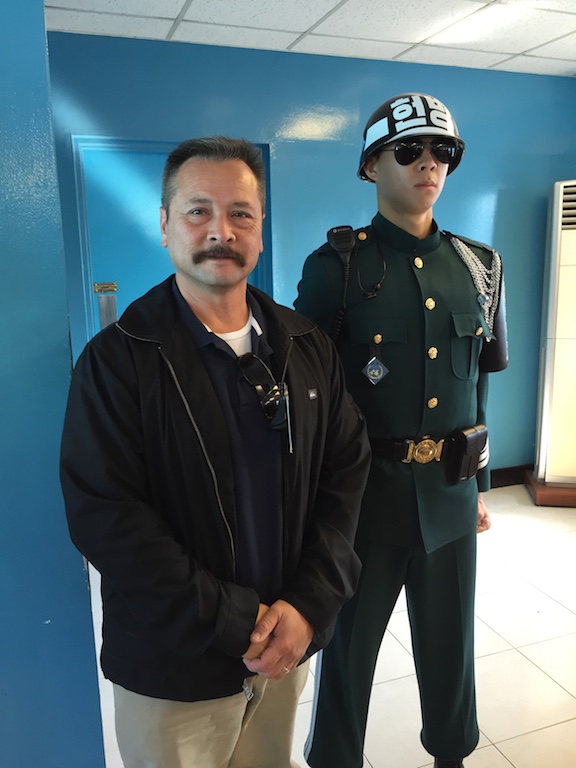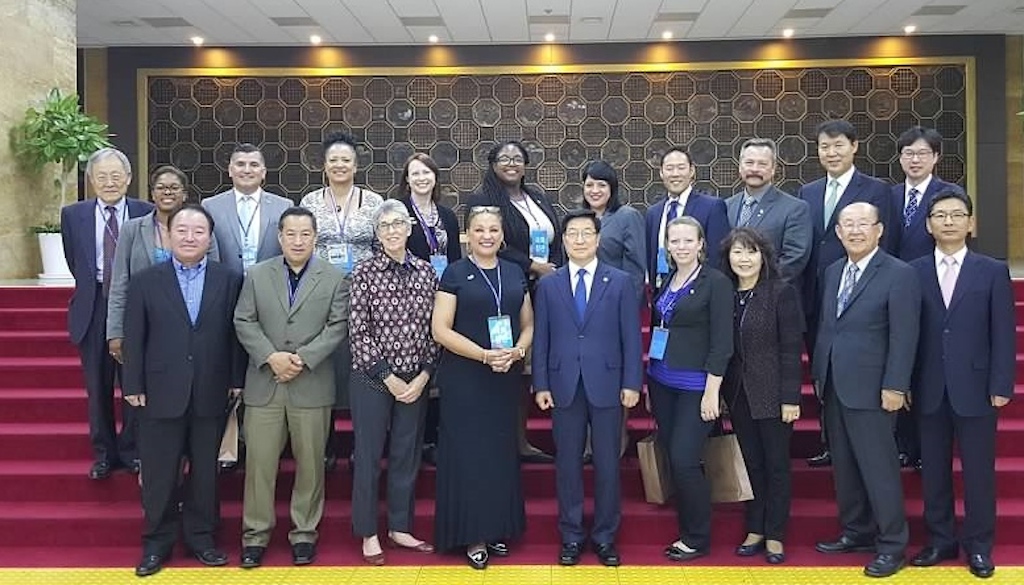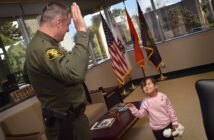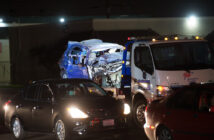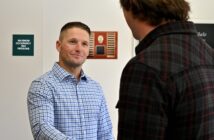Editor’s note: Bogue is a lieutenant with the Garden Grove PD and the agency’s public information officer. In this essay, he shares what he learned during a recent visit to South Korea as part of a multi-cultural leadership group.
South Korea is modernizing fast, but it still holds on to many traditional values and the old way of life. This was among many things I learned as a participant in the 17th-Annual Multi-Cultural Leadership Korea Visitation Program.
The Korean nonprofit GSC Los Angeles Club International (the acronym stands for Goodwill, Cooperation and Service) sponsors the annual program, which was created in 1997 as a response to the civil unrest in Los Angeles in 1992.
During those infamous six days of rioting following the acquittal of four LAPD officers in the videotaped arrest and beating of Rodney King, about 2,300 Korean-owned stores in Southern California were looted and burned.
The Multi-Cultural Leadership Korea Visitation Program aims to educate and help non-Korean American leaders to better understand the Korean community, in terms of history and culture. The program also assists in providing a peaceful and mutual understanding of people of Korean ancestry living in the United States.
Over the years, lots of police officers have participated in the program. In fact, the Garden Grove PD sends a lieutenant or higher every year. The annual trip is part of our agency’s desire to remain sensitive to the needs of the diversity of people living in Garden Grove. Asian and Pacific Islanders make up the largest ethnic group in our city (37.5 percent), followed by Hispanic/Latino (36.9) and white (22.6), according to a 2014 community profile.
The “delegates,” as we were called, included leaders from different lines of work, such as civil servants, politicians, educators, attorneys, social workers and heads of non-profit organizations. We were selected following an application process and brought various types of expertise from our professions to share with each other during our trip to South Korea.
Dr. Chan-Hie Kim and Jason Lee led the 10-day trip that began Oct. 10. Both of them arranged all the details for the excursion. After a 13-hour flight to Seoul, we arrived at a very modern hotel that mixed in well with old and new buildings.
We enjoyed three separate morning-session lectures with three different professors who taught us about South Korea’s culture, government and economy. I really enjoyed these lectures. We learned the importance of the way you greet a Korean to how the country has become a global leader in technology and industry.
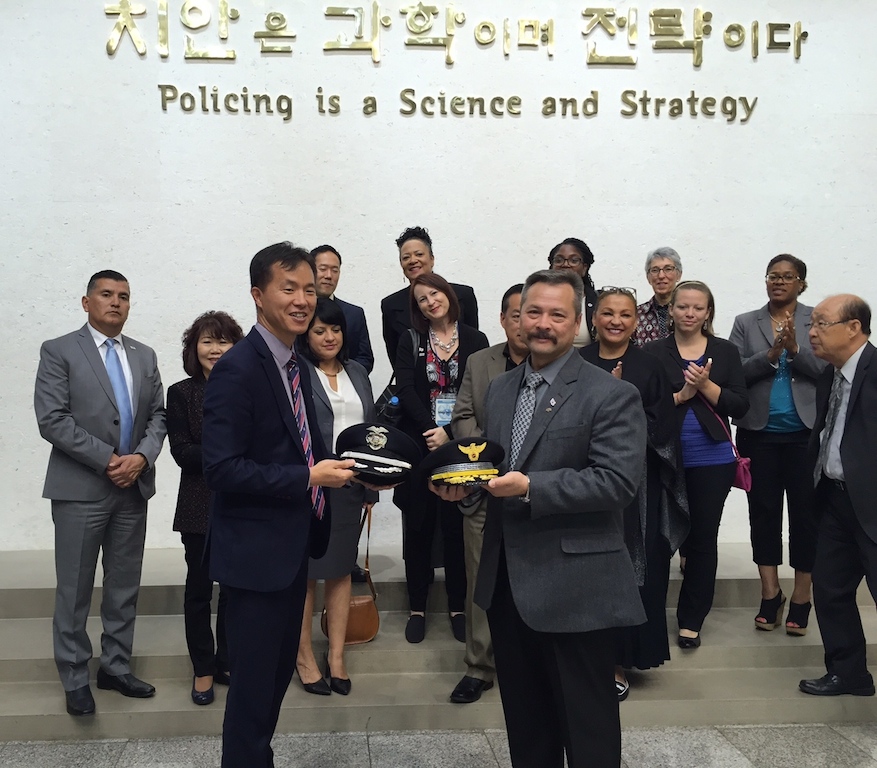
Bogue at the Seoul Metropolitan Police Agency with Superintendent Lee of Investigations. Photo courtesy of Bob Bogue
The Korean people have endured so much after being devastated by the Korean War, but they rose from the ashes. What I learned most about the Korean culture and people is that they know how to come together no matter how difficult the times; they know how to persevere.
The Korean culture has embraced and pursued technology extremely fast, but at the same time Koreans are trying to keep the traditions of the old way of life. The architecture in South Korea is amazing. There are very old, traditional buildings and right next door to our hotel was a giant, uniquely shaped, glass curved skyscraper.
Koreans have embraced technology; there is Wi-Fi access almost everywhere in the country.
We delegates were treated like VIPs everywhere we went. When we met important ambassadors from the GCS clubs from South Korea, they treated us with impressive formality and courtesy.
We took tours to the National Assembly building, which is equivalent to our Capitol, and met many representatives of the country. We toured the Korean War Museum, where four of the delegates had relatives who fought in the Korean War.
The Korean people really remembered and honored the delegates whose relatives served in the armed services. Dr. Kim and Jason Lee found a way to keep that appreciation alive. Once they learned that four family members from our group had served in the Korean War, they constantly introduced those family members to the people who were hosting the GCS Los Angeles club, honoring those who had served in the U.S. military for Korea. I know for sure that Korean citizens love Americans.
We toured the DMZ in Panmunjom, a Korean folk village, a Hyundai steel factory and many palaces and temples.
One of my favorite tours was to the Seoul Metropolitan Police Agency, a national police agency that takes a very modern approach to policing. Ironically, South Korea enjoys a very low violent crime rate considering that, for the most part, police officers don’t carry firearms. Firearms are illegal to possess in the country and the laws are more restrictive than those of the United Kingdom.
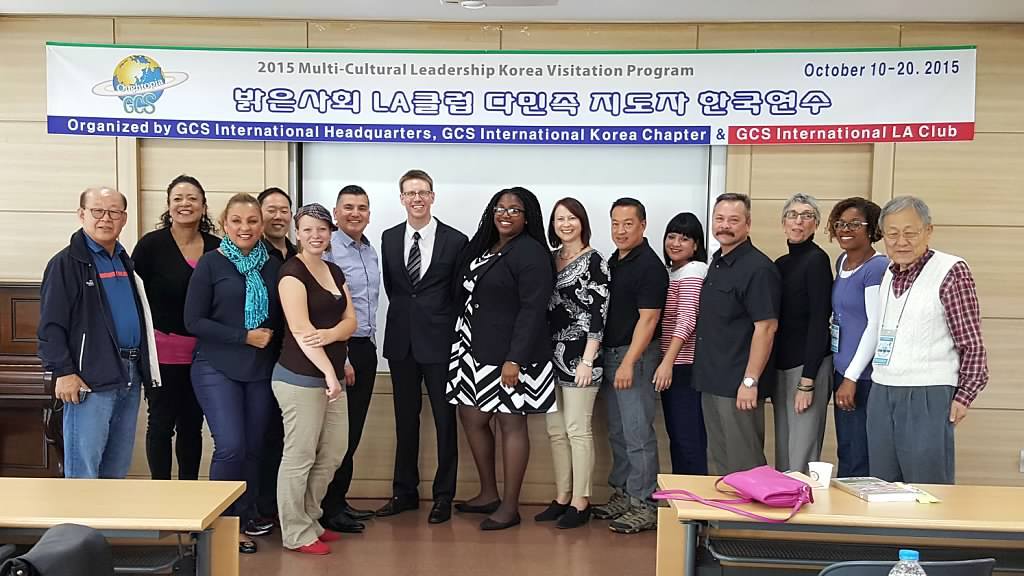
The delegates pose for a picture at the GSC Seoul international headquarters.. Photo courtesy of Bob Bogue
Police officers on patrol in South Korea driving in a police vehicle are the only ones who will actually carry a firearm. There are many police officers on the street walking around that don’t carry firearms. Only certain police officers check out guns to go on patrol, and they check them back in at the end of the shift.
Law enforcement officers like to trade patches and other items when they travel. I decided to trade my formal police uniform cap with a Korean Police superintendent. Not knowing the formality of the trade, I informed our tour guide that I wanted to trade caps and he informed me that he would make arrangements for the trade. A semi-formal ceremony was conducted for the trade of police caps. It was certainly a highlight of the trip for me.
I have learned so much and now really have a deep appreciation for the Korean culture, the people socially and economically and the country as a whole.
I have a better understanding about the tension between the North and South. I know how important it is to South Koreans to have unification with the North so they can become one country again someday. I believe because of the persistency of South Korea’s citizens that someday it will happen. I think that Americans can learn so much from how Korea has succeeded over the last half century and continue to find ways to lead in the world.
I believe trips like this are important and valuable because they teach what Korea has to offer socially and economically. I like the formality of the Korean culture. I think we have lost some of that in the U.S. My trip was an important reminder to treat others with respect — something that is sorely needed here in Orange County and throughout our country.
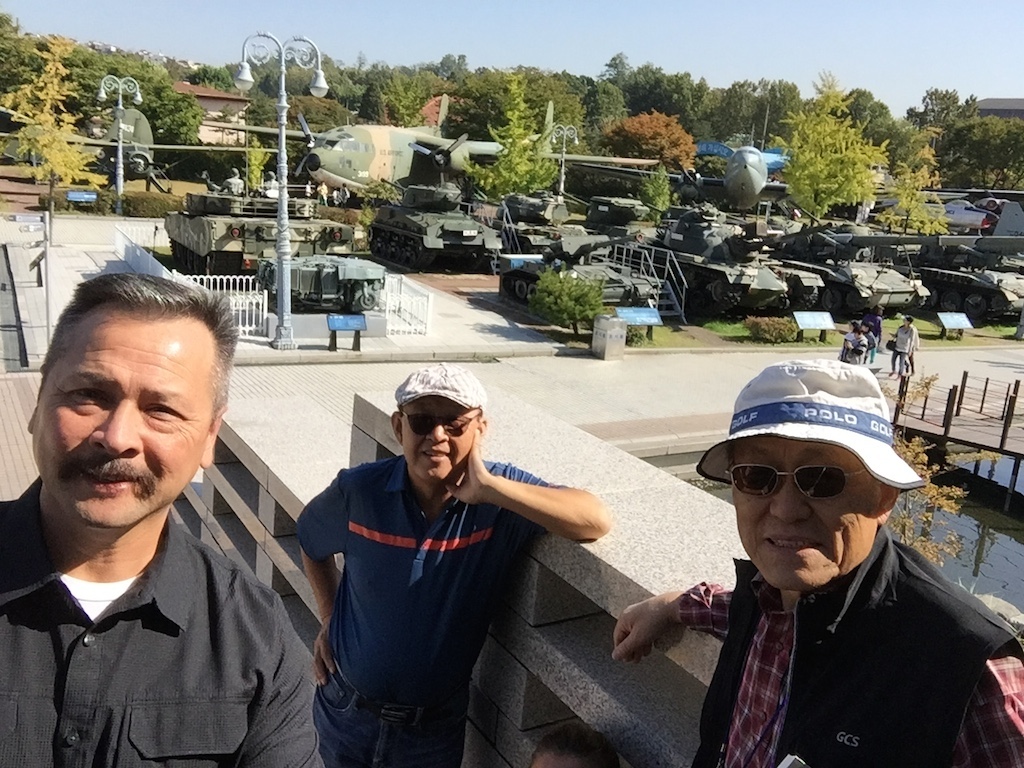
Bogue at the Korean War Museum with Jason Lee (middle) and Dr. Chan-Hie Kim. Photo courtesy of Bob Bogue
 Behind the Badge
Behind the Badge
